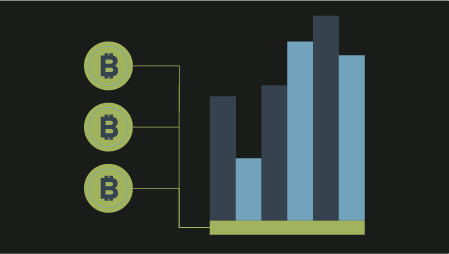The financial services industry has undergone a major transformation over the past few decades. Payment systems are digitized and banks and insurers rely on an array of software tools to serve their customers. But the transformation of this industry has only just begun. The future of finance is bound to be shaped by emerging technologies such as artificial intelligence (AI) and blockchain, while mobile payments will become increasingly popular, too. Access to customer data will determine market winners and losers. And changing consumer behavior is set to lead to the fusion of digital and physical systems, with lines between technology and financial services getting increasingly blurred.
Algorithms help customers and prevent fraud
Customers’ online purchases, salary history, savings, and social media posts are just a few of hundreds of data points that financial companies find relevant. These pieces of information are then fed into smart algorithms to either find insights or automate operations. For instance, the tech firm ZestFinance developed an AI-powered program that helps bank instantly assess the creditworthiness of potential customers. The service is particularly useful for analyzing clients with a limited credit history and can help the industry tap into new markets.
Fraud detection is another use of AI that’ll become ever more critical in the future. Powerful algorithms can monitor millions of transactions in real time, quickly spotting signs of money laundering and helping financial companies avoid massive fines. The British bank Standard Chartered, for example, was ordered to pay $1.1 billion because of poor money laundering controls.
AI can also help customers manage their investments with ease, even if their portfolio is only a few thousand dollars, effectively democratizing access to the stock market. And when these same customers contact their bank, they will likely be greeted by AI chatbots that work 24/7 and are capable of addressing even complex questions. These digital assistants are forecasted to grow into a $2.18-billion-worth market by 2024.
Blockchain provides an easier way to send money
Blockchain is another technology that’ll help the financial services industry improve multiple operations. As a distributed ledger that makes stored records immutable and verifiable, blockchain can hold companies’ balance sheets and provide regulators with real-time access to financial transactions. Visionary entrepreneurs are already working on blockchain-based products, and the research firm Gartner predicts that blockchain will reach mainstream adoption in less than a decade.
Another application of distributed ledger solutions is to facilitate cross-border payments. Currently, international payments are processed by multiple banks, making the process slow, expensive, and uncertain. But a blockchain-based processing system, such as XCurrent, developed by the fintech firm Ripple, could help banks transfer money within seconds. Cryptocurrencies such as Bitcoin and Ethereum are also a disruptive innovation powered by blockchain. They’re still far from replacing traditional currencies, though, as central banks and financial regulators are unwilling to provide private companies with such power. But as the example of Facebook’s Libra cryptocurrency shows, tech firms consider digital currencies as a viable business model that will gain more prominence in the future.
Adapting to changing consumer behaviour
The financial services industry will also have to keep pace with changes in consumer behavior. Millennials and Gen Z members, for instance, are used to a seamless digital experience provided by the likes of Uber, Amazon, and Netflix. Banks have to provide equally engaging services, which results in ever more powerful mobile banking apps. And payments initiated through smartphones are on the rise as customers flock to fintech companies such as Venmo and Zelle.
But as people hand over personal information and credit card details to digital systems, it’s essential that financial firms deploy strong cybersecurity measures to protect valuable customer data. Hackers are constantly trying to steal sensitive data that can be sold on the internet. Failure to tackle this challenge might end in incidents such as when hackers breached the credit-reporting agency Equifax and stole names, social security numbers, birth dates, and various other pieces of information of 143 million Americans.
Merging tech and services into a unified experience
The future of finance will be shaped by advanced technologies that’ll enable banks to deliver better services. Algorithms will play a major role in the industry, spotting money laundering schemes and helping banks better assess the creditworthiness of potential clients. Blockchain might power a real-time, cross-border payment system that’s faster and cheaper than traditional options, while smartphones are increasingly used to send and receive payments. Winning tomorrow’s customers will depend on financial companies merging various technologies and services into a single experience that attracts and retains even the most demanding customers.
Sources:
Bharadwaj, Raghav https://emerj.com/ai-sector-overviews/artificial-intelligence-risk-monitoring-banking/
Farrar, Martin https://www.cgma.org/content/dam/cgma/resources/reports/downloadabledocuments/changing-technology-finance-cgma.pdf
Feiner, Lauren https://www.cnbc.com/2019/10/14/facebook-forms-its-cryptocurrency-council-after-key-backers-drop-out.html
Karsch, Benjamin https://financialservicesblog.accenture.com/five-use-cases-for-blockchain-in-financial-services
Makortoff, Kalyeena https://www.theguardian.com/business/2019/apr/09/standard-chartered-fined-money-laundering-sanctions-breaches
Maruti Techlabs https://marutitech.com/ways-ai-transforming-finance/
Rake, Rachita and Supradip Baul https://www.alliedmarketresearch.com/chatbot-market



